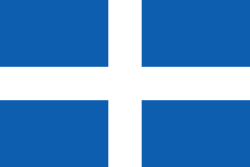| Greece at the 1936 Winter Olympics | |
|---|---|
 | |
| IOC code | GRE |
| NOC | Hellenic Olympic Committee |
| Website | www |
| in Garmisch-Partenkirchen | |
| Competitors | 1 (man) in 2 sports |
| Flag bearer | Dimitrios Negrepontis [1] |
| Medals |
|
| Winter Olympics appearances (overview) | |
Greece participated at the 1936 Winter Olympics in Garmisch-Partenkirchen, Germany, held between 6 and 16 February 1936. The country's participation in the Games marked its first appearance at the Winter Olympics. The Greek team consisted of a lone athlete skier Dimitrios Negrepontis, who also served as the country's flag-bearer during the opening ceremony. The country did not win any medals in the event.